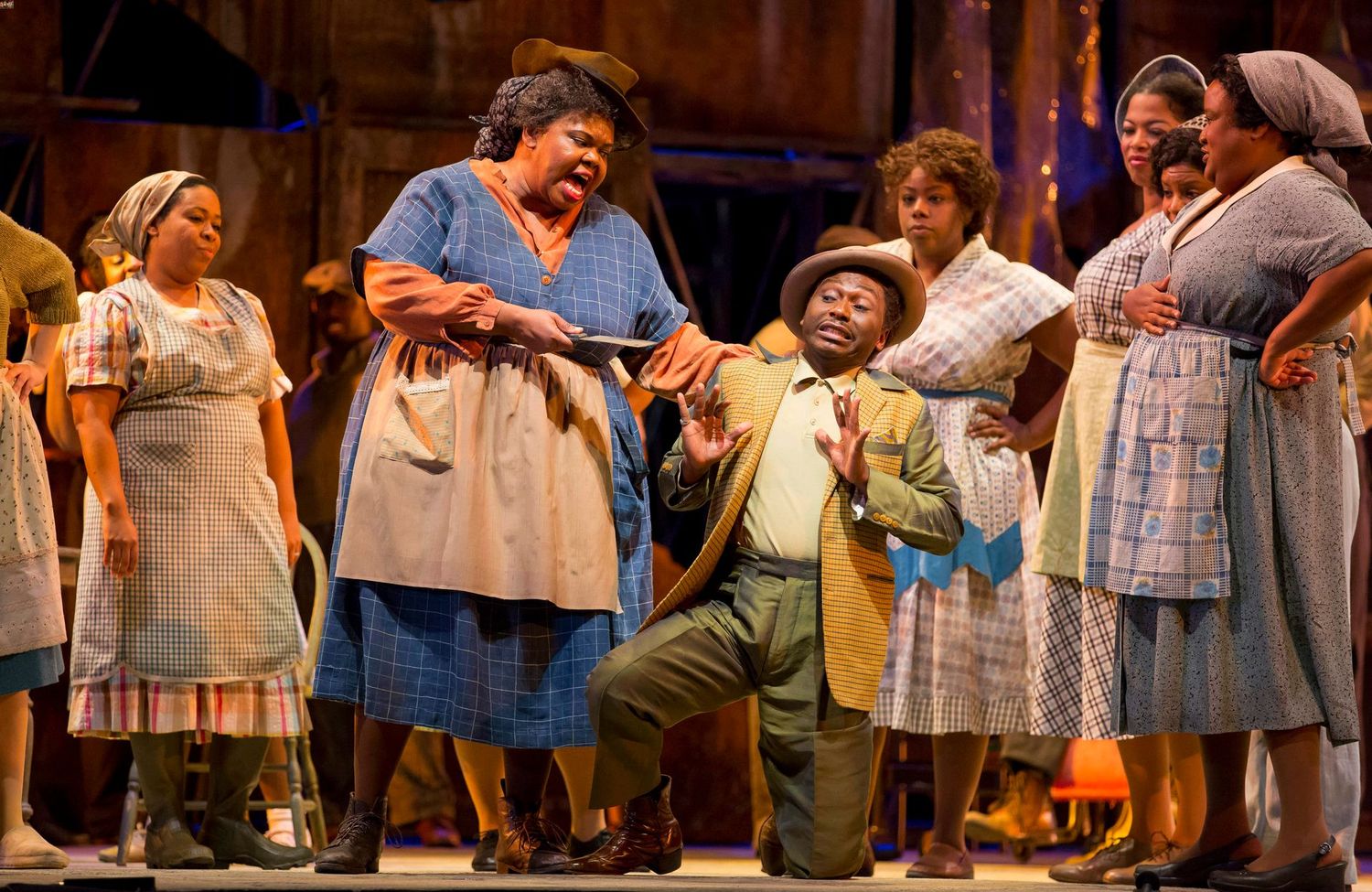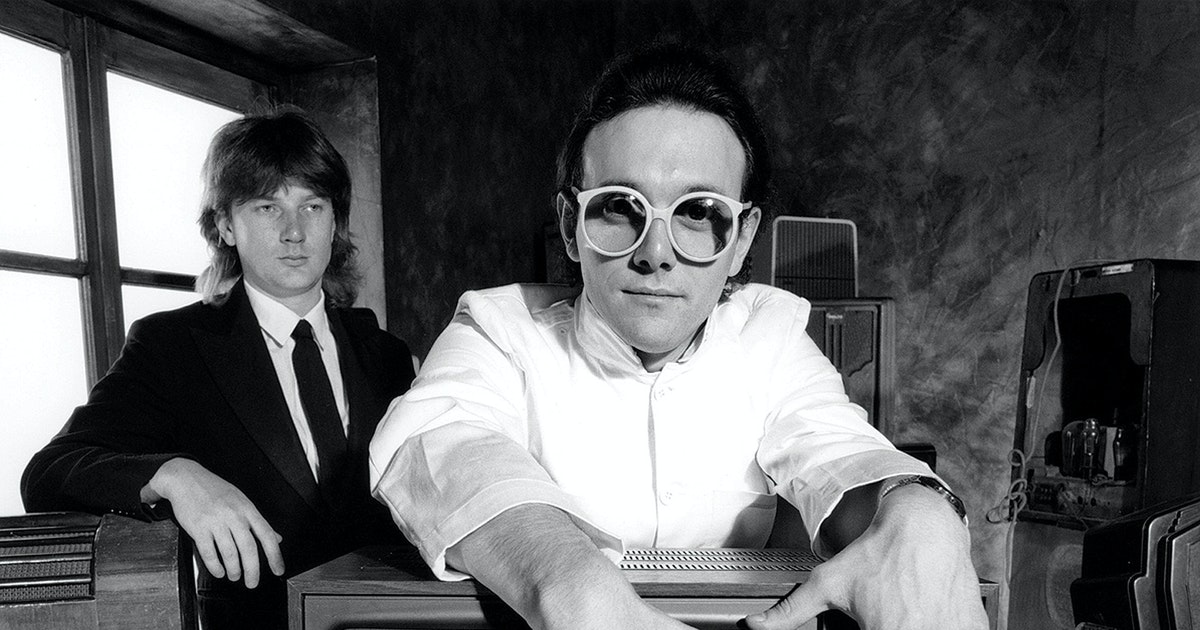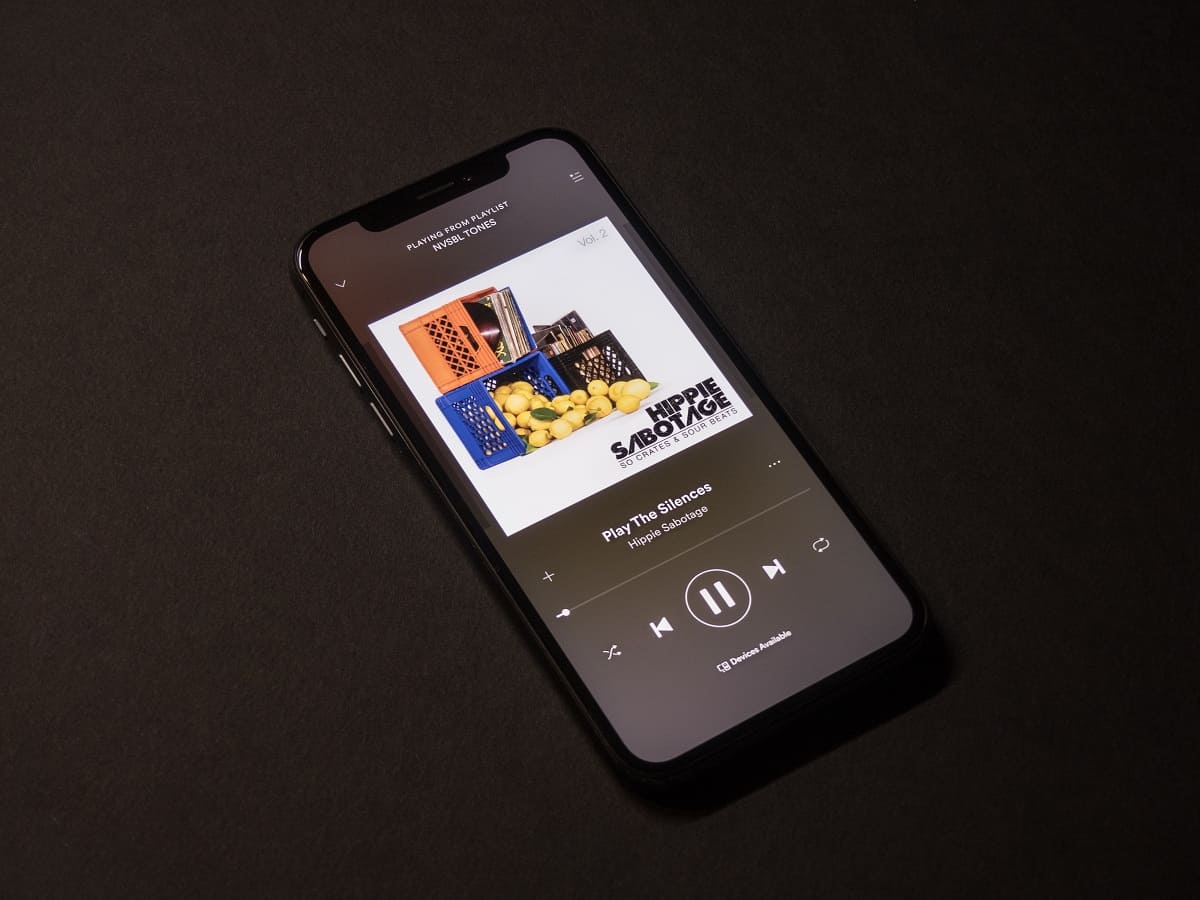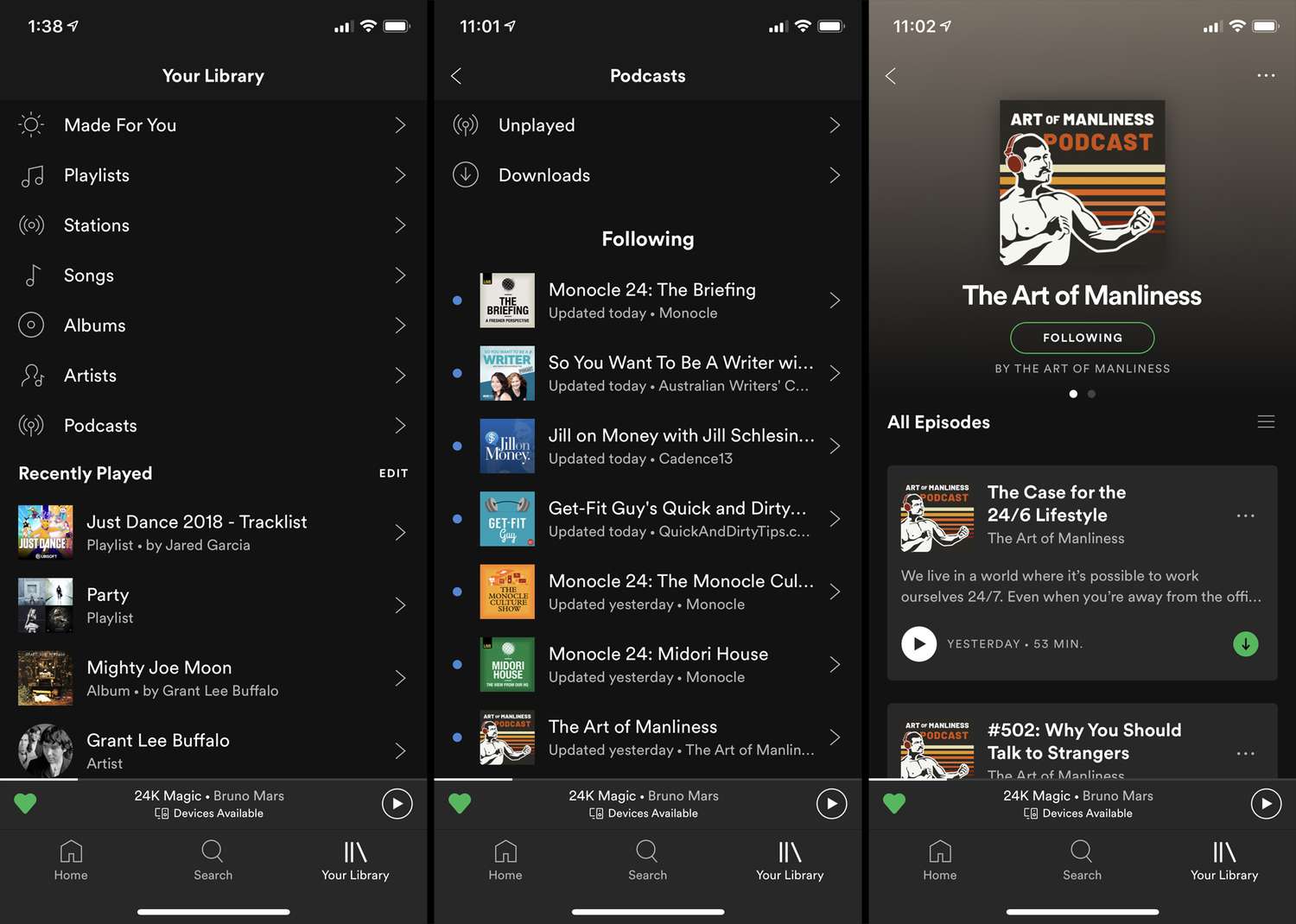Home>Events & Info>Podcast>Where Did The Term Podcast Come From


Podcast
Where Did The Term Podcast Come From
Modified: January 22, 2024
Discover the origins of the term "podcast" and how it revolutionized digital audio content. Explore the fascinating history of podcasts and their impact today.
(Many of the links in this article redirect to a specific reviewed product. Your purchase of these products through affiliate links helps to generate commission for AudioLover.com, at no extra cost. Learn more)
Table of Contents
Introduction
Podcasting has become an increasingly popular medium for sharing information, entertainment, and stories. But have you ever wondered where the term “podcast” originated? This article delves into the origins of podcasting and how the term itself came to be.
In recent years, podcasting has experienced a massive surge in popularity, with millions of people tuning in to their favorite shows on a regular basis. But the roots of podcasting can be traced back to the early 2000s, when it started as a way for individuals to distribute audio content online.
The development of podcasting can be attributed to several factors, including the rise of the internet and the increasing accessibility of digital audio recording and distribution. As more people gained access to the necessary tools and technology, the podcasting landscape began to take shape.
However, it wasn’t until the term “podcast” was coined that this form of content distribution truly took off. The word “podcast” itself is a combination of “iPod,” Apple’s revolutionary portable media player, and “broadcast,” a term used to describe the transmission of radio or television programs.
So how did the term “podcast” come into existence? Let’s explore the story behind its creation and its connection to the rise of podcasting as we know it today.
Origins of Podcasting
The origins of podcasting can be traced back to the early 2000s, when a handful of tech-savvy individuals started experimenting with ways to distribute audio content over the internet. These early pioneers were driven by a desire to provide an alternative to traditional radio broadcasting and reach a wider audience.
One of the key figures in the development of podcasting is Dave Winer, an American software developer and entrepreneur. Winer played a crucial role in creating the technology that would eventually pave the way for podcasting. In 2000, he developed RSS (Really Simple Syndication) – a web-based format for publishing frequent updates – which became the backbone of podcasting.
Another important milestone in the evolution of podcasting was the creation of audio blogging, or “audioblogging.” This form of content creation allowed individuals to record and share audio files online, often in the form of personal journal entries or commentary.
In 2003, former MTV video jockey Adam Curry and software developer Christopher Lydon began experimenting with audio blogging and introduced the concept of delivering audio content through RSS feeds. This marked a significant step forward in the evolution of podcasting, as it enabled listeners to subscribe to and automatically receive new episodes of their favorite shows.
With the development of audio blogging and the integration of RSS technology, the foundations of podcasting were laid. People now had the ability to create their own audio content and distribute it to a global audience.
Although these early forms of podcasting were relatively niche and limited to tech-savvy individuals, the stage was set for the medium to explode in popularity.
As technology continued to advance and become more accessible to the general public, podcasting started to gain traction. With the proliferation of smartphones and the widespread availability of high-speed internet, more and more people began exploring the world of podcasting, both as creators and listeners.
The next major development in the history of podcasting would come in the form of the term that would forever change the industry: “podcast.”
The Birth of the Term “Podcast”
The term “podcast” was born in 2004, coined by a journalist named Ben Hammersley in an article for The Guardian. Hammersley was writing about the emerging trend of audio content being distributed online and wanted to come up with a catchy name for it.
Being a fan of Apple’s iPod and recognizing its influence on the world of digital media, Hammersley combined “iPod” with “broadcast” to create the term “podcast.” The name captured the essence of what this new form of content distribution was all about – the ability to listen to on-demand audio programs whenever and wherever you wanted.
Although the term was initially met with some skepticism and resistance, it quickly caught on and became widely adopted within the podcasting community. The simplicity and familiarity of the name, coupled with its connection to the popular iPod device, helped propel the medium into the mainstream consciousness.
One of the reasons why the term “podcast” resonated so well with people was its association with the iPod. At the time, the iPod was the dominant portable media player, and its sleek and user-friendly design made it a favorite among music lovers. By aligning podcasting with the iPod, it gave the medium a sense of credibility and accessibility.
Additionally, the term “podcast” had a certain appeal and playfulness to it. It carried a sense of excitement and novelty, as it represented a new way of consuming audio content. The catchy name helped attract attention and generate buzz around this emerging medium.
While “podcast” became the widely accepted term for this form of content distribution, it’s worth noting that not all podcasts are actually listened to on an iPod. The term “podcast” has become more of a generic term to describe any form of episodic audio content that can be downloaded or streamed.
The birth of the term “podcast” not only helped establish a recognizable identity for this emerging medium but also played a crucial role in its rapid growth and popularity. Today, podcasts cover a wide range of topics and genres, from news and education to true crime and entertainment, captivating millions of listeners worldwide.
The Role of Apple’s iPod
When discussing the origins and growth of podcasting, one cannot overlook the significant impact of Apple’s iPod. The iPod, a portable media player introduced by Apple in 2001, revolutionized the way people consumed music and ultimately played a crucial role in the success of podcasting.
With its sleek design, intuitive interface, and large storage capacity, the iPod quickly became a must-have device for music enthusiasts. It allowed individuals to carry their entire music libraries with them wherever they went, freeing them from the limitations of CDs or cassette tapes.
As podcasting started to gain momentum in the early 2000s, the iPod provided the perfect platform for listeners to enjoy this new form of audio content. With the ability to easily transfer and organize podcasts onto the device, the iPod made it incredibly convenient for users to have their favorite shows at their fingertips.
The popularity of the iPod helped spark a symbiotic relationship with podcasting. As more people embraced podcasting, the demand for portable devices on which to listen to these shows grew. The ease of use and seamless integration of podcasts into the iPod’s user interface made it the go-to device for podcast enthusiasts.
Apple recognized the growing importance of podcasting and further embraced the medium by including a dedicated podcasting section in its iTunes software. This move made it even easier for podcasters to distribute their shows and for listeners to discover new content.
Moreover, the iTunes Store, which debuted in 2003, played a pivotal role in the success of podcasting. By providing a centralized platform where users could discover, subscribe to, and download podcasts, the iTunes Store made it accessible for both creators and listeners to engage with this evolving medium.
With the popularity of the iPod, the iTunes Store, and the seamless integration of podcasting into the Apple ecosystem, podcasting matured and became more mainstream. The iPod’s portability and user-friendly interface fueled the growth of podcast consumption, allowing listeners to tune in to their favorite shows during commutes, workouts, or any time they desired.
While the iPod has since been surpassed by smartphones and other mobile devices as the primary means of listening to podcasts, its impact on the early development and mass adoption of podcasting cannot be overstated. The iPod’s role in providing a seamless and enjoyable listening experience helped pave the way for the podcasting revolution that we see today.
Evolution and Popularity of Podcasting
Since its humble beginnings in the early 2000s, podcasting has evolved from a niche medium to a mainstream form of entertainment and education. The combination of technological advancements and a growing appetite for on-demand audio content has propelled podcasting into the cultural zeitgeist.
One of the key factors contributing to the evolution of podcasting is the democratization of access to recording and distribution tools. In the past, creating and broadcasting audio content required expensive equipment and access to traditional media outlets. However, with the advent of affordable recording devices, editing software, and podcast hosting platforms, virtually anyone can start their own podcast today.
This accessibility has led to a significant increase in the number of podcasts available across a wide range of genres and topics. From true crime and storytelling to business and personal development, there is a podcast for practically every interest.
Furthermore, the rise of smartphones and the ubiquity of high-speed internet access have made it easier than ever for listeners to discover and consume podcasts. With podcast apps pre-installed on many devices and platforms such as Apple Podcasts, Spotify, and Google Podcasts offering a vast library of shows, finding and subscribing to podcasts has become a seamless experience.
Podcasting’s popularity has also been fueled by the rise of influential and highly-produced shows that have captured the attention of audiences worldwide. Shows like “Serial,” which debuted in 2014, helped propel podcasting into the mainstream consciousness. This true crime series became a cultural phenomenon and demonstrated the storytelling potential that podcasts possess.
Podcasting’s versatility as a medium has also contributed to its popularity. Unlike traditional media formats, podcasts allow for longer, in-depth discussions and interviews that can’t always be accommodated in other mediums. This long-form format provides a deep connection between hosts and listeners, fostering a unique sense of intimacy and engagement.
Advertisers and brands have also recognized the power of podcasting as an effective marketing tool. The intimate nature of the medium allows for targeted and personalized advertising, making it a lucrative platform for reaching specific audiences. As a result, the podcast advertising industry has experienced significant growth in recent years.
As podcasting continues to evolve, it has become an integral part of our media landscape. Whether it’s for entertainment, education, news, or storytelling, podcasts have become a go-to source of information and inspiration for millions of listeners worldwide.
The future of podcasting looks promising, with the potential for further innovation and expansion. As technology continues to advance and the appetite for audio content grows, podcasting is poised to remain a dominant force in the media industry for years to come.
The Influence of Serial and the Podcast Renaissance
In 2014, a podcast by the name of “Serial” burst onto the scene and forever changed the landscape of podcasting. Produced by Sarah Koenig and created by the team behind “This American Life,” “Serial” revitalized the medium and sparked a podcast renaissance.
“Serial” took a true crime story, the case of Adnan Syed, and presented it in a serialized format, with each episode delving deeper into the details and complexities of the case. The show captivated listeners with its meticulous research, compelling storytelling, and the suspense of exploring a real-life mystery.
The success of “Serial” opened the floodgates for a wave of narrative-driven podcasts, demonstrating the power of long-form storytelling in the audio format. This paved the way for other true crime podcasts like “My Favorite Murder” and “Criminal,” which gained significant followings and contributed to the continued popularity of the genre.
Beyond true crime, the success of “Serial” also helped to broaden the scope of podcasting in terms of genres and content. Podcasts now cover a wide array of topics, including comedy, politics, education, history, self-improvement, and much more. The success of one groundbreaking show gave aspiring podcasters the confidence and inspiration to explore and experiment with different themes and formats.
In addition to influencing content, “Serial” also had a significant impact on the business side of podcasting. The success of the show highlighted the potential for monetization through sponsorships and advertising. Advertisers began to recognize the loyal and engaged podcast audience, leading to increased investment in podcast ad campaigns.
The popularity of “Serial” also led to a surge in podcast listenership. People who may not have been familiar with or interested in podcasts before were drawn in by the buzz surrounding the show. As a result, podcasting as a medium experienced a renaissance, with millions of new listeners discovering and exploring the vast world of podcasts.
The success of “Serial” also prompted mainstream media outlets and celebrities to enter the podcasting arena. This influx of new shows brought increased attention to the medium and further validated podcasting as a legitimate form of storytelling and entertainment.
The podcast renaissance sparked by “Serial” continues to this day, with countless new shows being created and enjoyed by listeners around the world. It demonstrated the power of audio storytelling and the unique connection that podcasts can forge with their audience.
As the popularity of podcasts continues to grow, it’s clear that the influence of “Serial” and the podcast renaissance it ignited will be remembered as a turning point in the history of podcasting.
Conclusion
Podcasting has come a long way since its early days as a niche form of audio distribution. What started as a grassroots movement rooted in the passion and ingenuity of individuals has now become a mainstream medium with millions of listeners worldwide.
From its origins in the early 2000s to the birth of the term “podcast,” the influence of Apple’s iPod, the evolution and popularity of podcasting, and the impact of shows like “Serial,” podcasting has had a profound impact on the media landscape.
The accessibility of podcasting has allowed anyone with a microphone and a story to become a content creator. This democratization of media has given rise to a diverse range of shows and voices, providing a platform for underrepresented stories and alternative perspectives.
The intimate nature of podcasts, coupled with their on-demand nature, has created a unique connection between hosts and listeners. Podcasts have the ability to educate, entertain, inspire, and foster a sense of community among their devoted listeners.
As technology continues to advance, podcasting shows no signs of slowing down. The medium continues to attract new listeners, and with the rise of platforms like Spotify and Google Podcasts, podcasts are becoming increasingly integrated into our daily lives.
Whether you’re an avid podcast listener or new to the medium, there is a vast and ever-expanding world of podcasts waiting to be explored. From compelling true crime stories to thought-provoking interviews and enlightening educational content, there is something for everyone.
The future of podcasting holds endless possibilities. As podcasts continue to evolve, we can expect to see even more innovative formats, engaging storytelling techniques, and increased accessibility for both creators and listeners.
So, grab your headphones, find a comfortable spot, and immerse yourself in the captivating world of podcasts. With a diverse array of topics and voices to choose from, there’s no limit to what you can discover and enjoy in this unique audio landscape.











